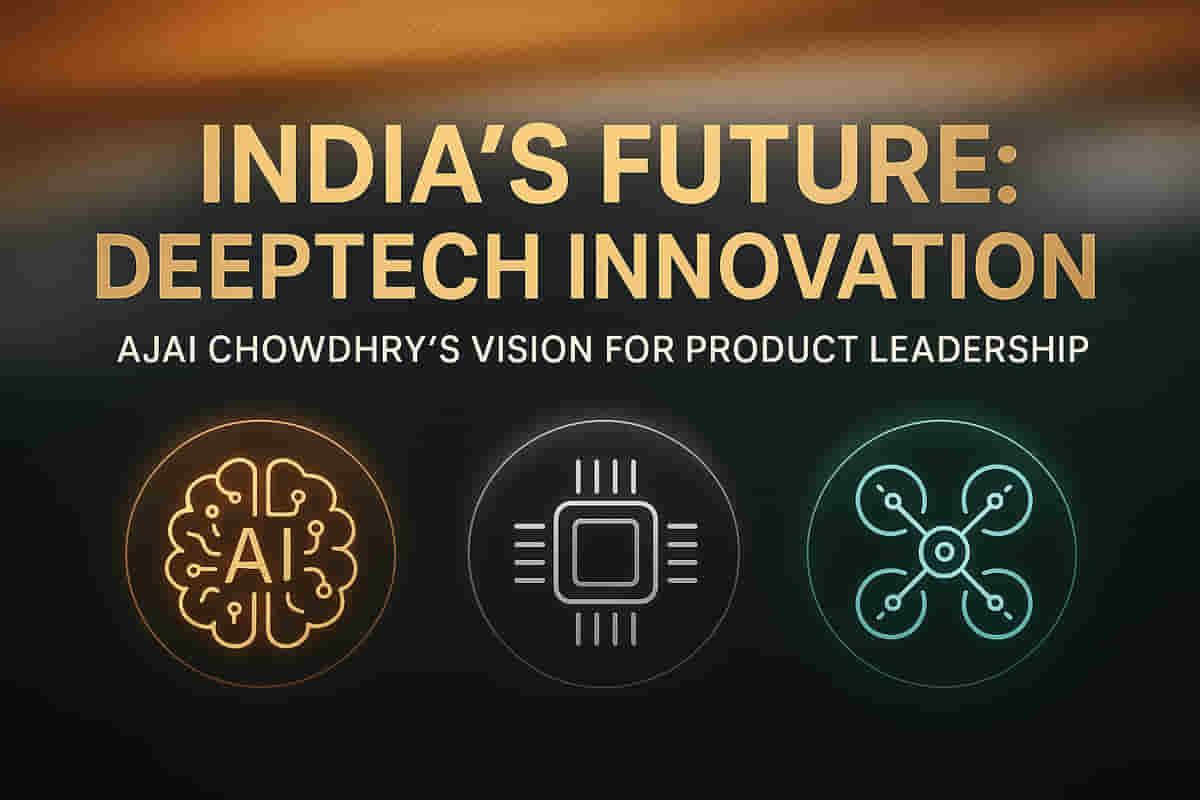India's Future in Deeptech: Ajai Chowdhry Urges Focus on Semiconductors and Product Innovation Over Consumer Apps
Startups/VC
|
31st October 2025, 11:41 AM

▶
Short Description :
Detailed Coverage :
Entrepreneurship is more than just starting a business; it's a mindset shift towards building something new, often involving risk and uncertainty. A recent Inc42 survey highlighted that over 22% of top Indian investors believe the startup ecosystem should focus more on deeptech sectors like Artificial Intelligence (AI), semiconductors, and drones, rather than just convenience apps, to truly transform industries.
This vision is echoed by Ajai Chowdhry, a co-founder of HCL and often called the 'father of Indian hardware', in his book 'Just Aspire'. He identifies semiconductors as crucial for India's technological future. Speaking at Galgotias University, Chowdhry shared his journey from the 1970s, where he and five others pooled INR 1.86 Lakh to start HCL, which is now a $14 billion company, underscoring his philosophy: "Aspiration is greater than Resources" (A > R).
He urged Indian youth to move beyond seeking high-paying jobs and instead focus on creating their own companies. With the world's youngest population, India is uniquely positioned for an innovation-driven future. Chowdhry advocates for a transition from a "services-led" to a "product-led" economy, emphasizing that universities should teach students to create products, not just write code. Collaborations between academia and industry are vital for nurturing this next generation of product innovators and building a strong foundation for India's technological advancement.
Impact This news highlights a critical strategic shift for India's economic future, focusing on foundational technologies. It can inspire more investment and talent into deeptech sectors, potentially leading to the creation of new, high-value companies. This, in turn, could drive significant long-term growth for the Indian stock market as these innovative companies mature. Rating: 7/10.
Difficult Terms Explained: * Entrepreneurship: The activity of setting up a business or businesses, taking on financial risks in the hope of profit. * Deeptech: Refers to startups and companies that rely on significant scientific or technological innovation and often involve substantial research and development. Examples include AI, semiconductors, biotech, and advanced materials. * Semiconductors: Materials, usually silicon, that conduct electricity under controlled conditions, making them essential components in virtually all electronic devices like computers, smartphones, and cars. * Drones: Unmanned aerial vehicles (UAVs) used for various purposes, from photography and delivery to surveillance and military applications. * Aspiration: A strong desire or ambition to achieve something. * Innovation-driven entrepreneurship: Starting businesses that are based on creating new ideas, products, or processes. * Thought leadership: The practice of establishing oneself as an authority in a specific field, offering unique insights and guiding future directions. * Startup ecosystem: The network of organizations, individuals, and resources that support the creation and growth of new businesses (startups) in a particular region. * Product innovation: The introduction of a new product or significant improvement to an existing product that adds value for the customer. * Services-led economy: An economy where the majority of economic activity and employment comes from the service sector (e.g., IT services, consulting, finance). * Product-led economy: An economy where the majority of economic activity and value is generated from the creation and sale of physical or digital products. * Academia-industry collaboration: Partnerships between universities or research institutions and businesses to advance research, development, and education. * Applied research: Scientific inquiry that aims to solve practical problems and develop new technologies or products. * Startup incubation: A program designed to help new companies grow by providing resources such as office space, mentoring, and access to funding.